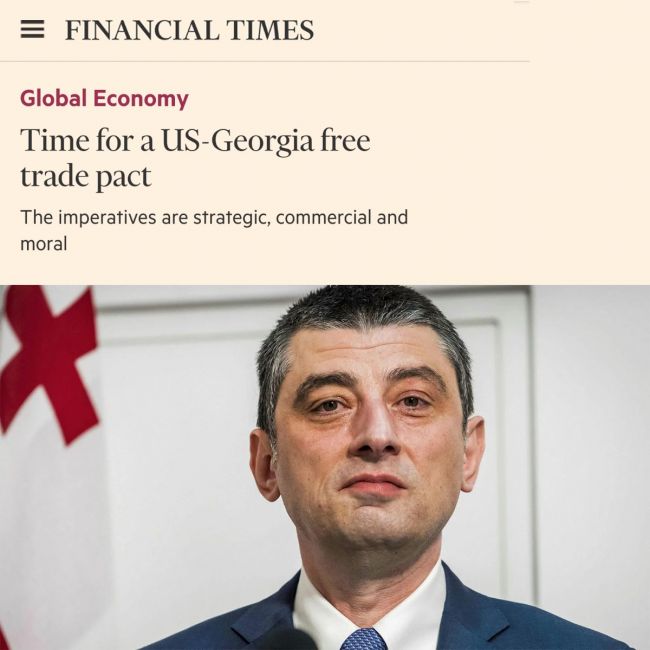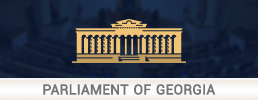
James Bacchus
November 8, 2019 5:00 am
With the US in a sudden and shortsighted military retreat in Syria, and with doubts growing daily about its willingness to stand by those who have supported it in the Greater Middle East, there is an urgent need to strengthen our ties with countries in the critical crossroads region between the Black Sea and the Arab Gulf. One such country is Georgia, and one way of solidifying a positive and continuing American presence in the region would be by concluding a US-Georgia free trade agreement.
Strategically, commercially and, not least, morally, responding now to Georgia's oft-stated desire for the launch of negotiations on an FTA makes sound sense for the US. Not only would it cement our ties with Georgia. It would also reassure other countries in the region that, despite recent events, the US continues to offer an alternative to acquiescence to the authoritarian regimes that surround and threaten them.
Strategically, Georgia is perilously placed along the fraught invisible border between the east and west, with the European Union to the west, Russia to the north, Turkey and Iran to the south and China to the east. Since securing their independence from the former Soviet Union in 1991, the Georgians, in search of freedom, have largely looked to the EU and the US for inspiration.
This is not easily done in their neighbourhood. A Russian military invasion in 2008 cost Georgia Abkhazia and South Ossetia - northern regions that border Russia and comprise about 20 per cent of Georgia's national territory. Russian encroachment continues. Likewise, the Turks and the Iranians are restive, assertive and not far away. Amid all these threats, the signing of an FTA between Georgia and the US would send a strong signal that America is committed to expanding its footprint in this key region.
Commercially, there is opportunity aplenty in Georgia that could greatly benefit American businesses and workers. Georgia is a member of the World Trade Organization and, within the framework of WTO rules, has done much to open up and integrate its economy with the wider world. Since gaining its independence after the demise of the former Soviet Union, Georgia has gradually risen in the annual Index of Economic Freedom published by the Heritage Foundation from number 124 to number 16 - the biggest leap by any country on record. Emerging from the economic inertia of its communist past, Georgia is no longer described in these rankings as "economically repressed" but, rather, as "economically free".
In recent years, Georgia's economic growth has been reasonably strong, especially given its geopolitical circumstances. In 2017 and 2018, Georgia's GDP growth was the fastest in the region, at 4.8 per cent a year. The IMF has forecast a sustained rate of GDP growth for Georgia of about 4.9 per cent annually from 2019 to 2021, more than twice its forecast for global growth. At the same time, importantly, the poverty rate in the country is down from 39 per cent a decade ago to 22 per cent today.
Georgia, with its central location in Eurasia and increasingly open trade and investment regime, could serve as an entry point to a regional market of half a billion people for US companies looking to expand their exports. The Georgians are eager to increase their two-way trade with the US and spur more American investment by reaching an FTA.
Giorgi Gakharia, the new Georgian prime minister, is fully supportive of the prospective agreement. He said last month: "A trade agreement is a logical continuation of our partnership with the US. We've nurtured our relationship to the point where we are ready to welcome more US companies to Georgia, which serves as a natural hub for American companies to access larger markets in Eurasia. A trade agreement will advance both America and Georgia's security interests, while bringing tangible economic benefits."
Morally, too, there is every reason to proceed with an FTA. Georgia continues to be a loyal and reliable partner of the US. The country has contributed much through the years in support of the US mission in Afghanistan. Georgians are still serving there. Of all our coalition partners in Afghanistan, the rate of casualties for Georgia has been the highest on a per capita basis. When the people of another country stand with us in combat, we Americans should, at the minimum, be willing to trade with them freely.
Georgia meets all the criteria the Trump Administration has identified as prerequisites for a bilateral trade agreement. In 2018, during the previous Congress, the House of Representatives passed legislation that supported Georgia and urged the US Trade Representative to take genuine steps towards launching free-trade talks with Georgia. This legislation should be adopted by both the House and the Senate in the current Congress and signed by the president.
With the credibility, reliability and security of the US in increasing jeopardy around the world, the time to do so is now.
James Bacchus is Distinguished University Professor of Global Affairs at the University of Central Florida and an Adjunct Scholar at the Cato Institute in Washington, DC. He is a former member of the US Congress, a former chairman of the Appellate Body of the World Trade Organization, and author most recently of The Willing World: Shaping and Sharing a Sustainable Global Prosperity (Cambridge, 2018), named one of the Best Books of the Year 2018 by the Financial Times.
Sourse: https://www.ft.com/











